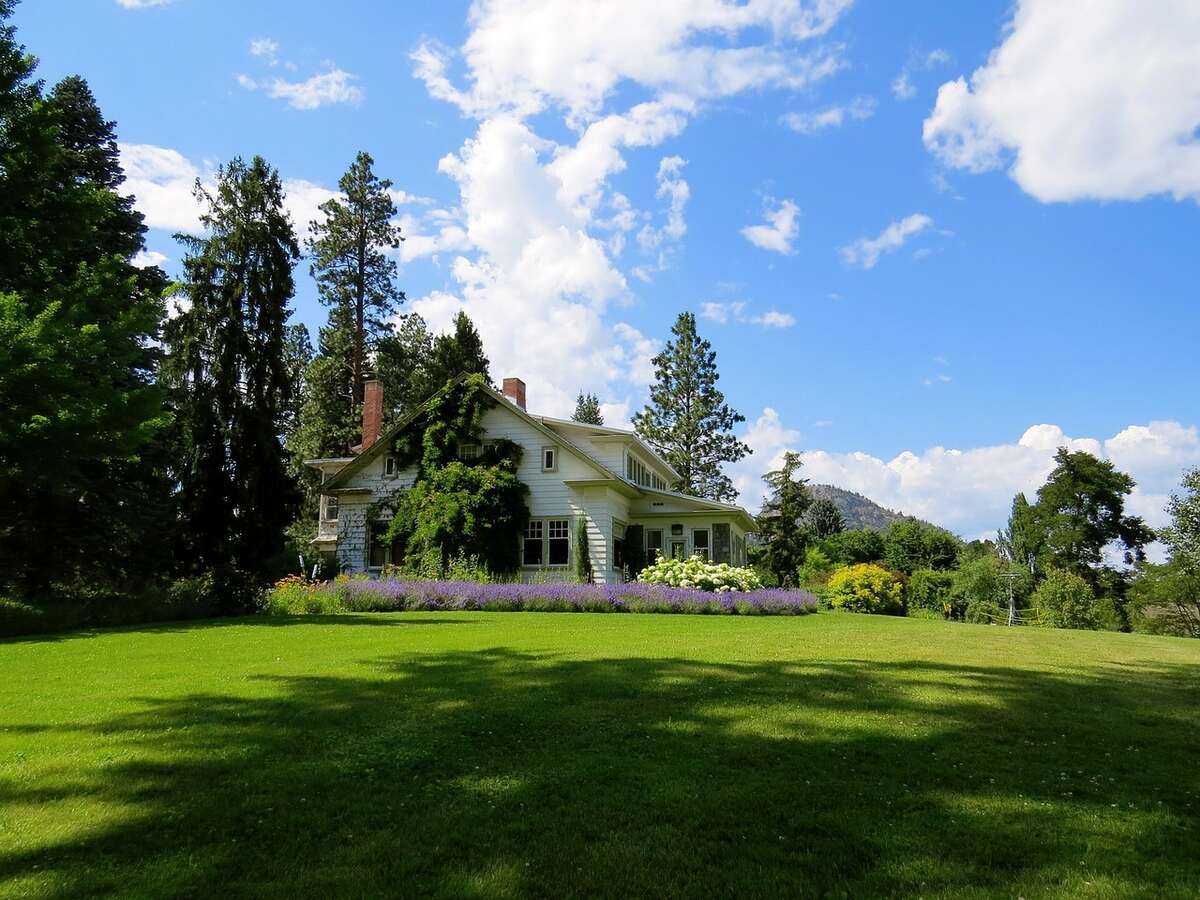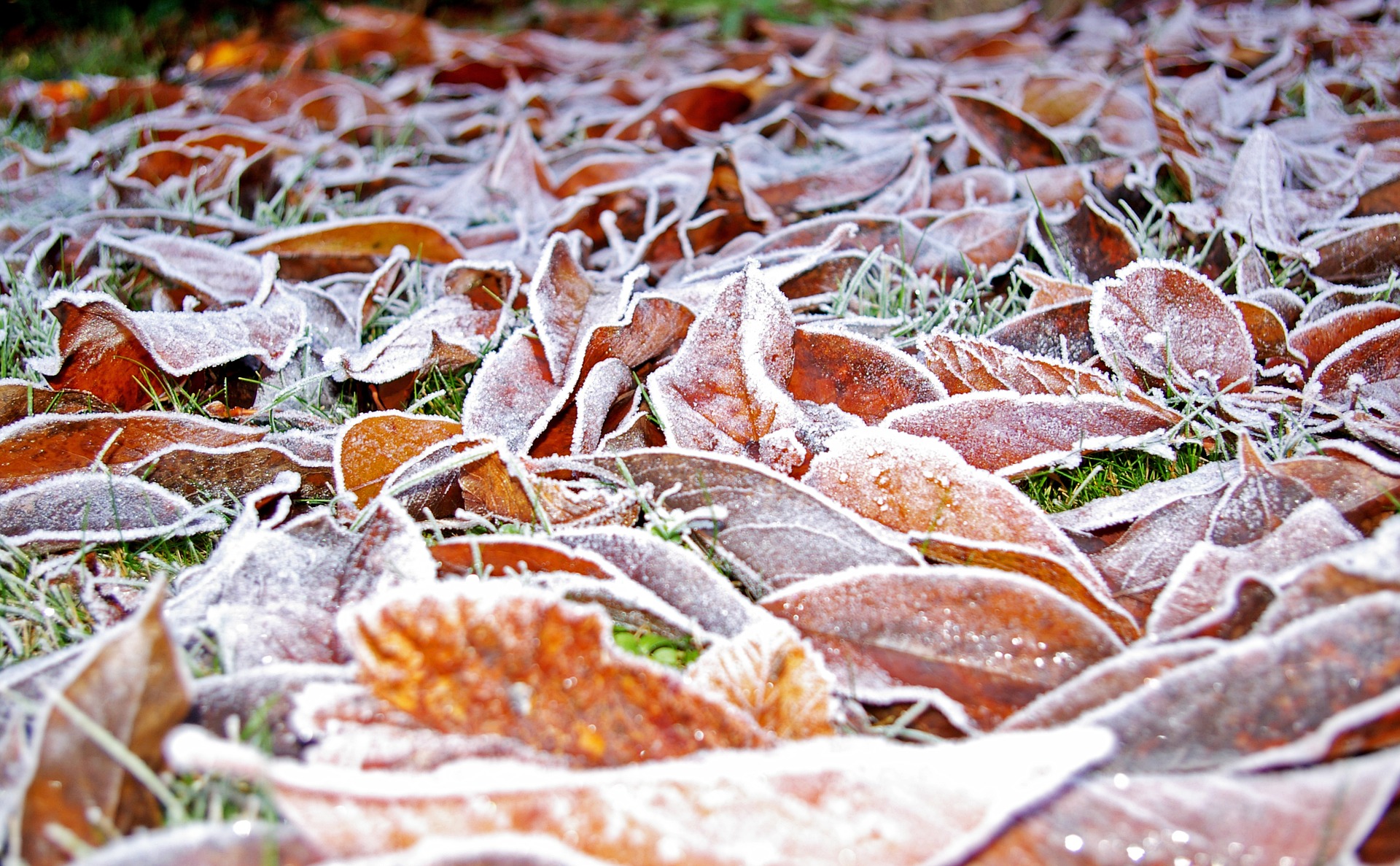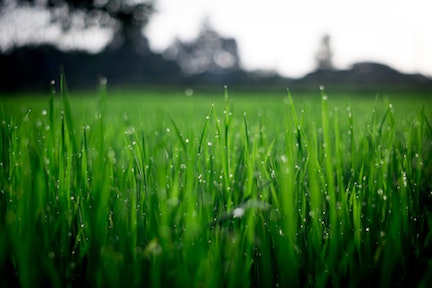
Spring in Milwaukee, Wisconsin may bring memories of rainy days. But those rainy days lead to those beautiful warm spring afternoons, full of lush green grass and colorful flowers that the rain nourished. But a perfect lawn doesn’t just happen, despite the rain and snowmelt. Here are six spring lawn care tips you should use during this season in Milwaukee.

Clean up winter debris
The first step you should take is to clean up any debris left over from the winter months. This may be leaves or branches that broke off and have been sitting on the ground. Clean up any branches that have broken and fallen, then rake up the leaves. A quick tip to make raking easier and more efficient: rake the leaves onto a tarp (or burlap square) for easier pickup and removal.
What you’ll need: Rake, plastic tarp, trash bags
Reseed bare spots
Even the most well-kept lawns will have some bare, brown, dead spots that were dormant from over the winter. This can be a relatively easy fix though – get some seed and a spreader and apply seed to those bare spots to start renewing your lawn for the summer.
What you’ll need: Seed of your choice, seed spreader
Dethatch your lawn
Dethatching your lawn helps to break down the old grass, leaves and other organic matter that has built up over time. It opens it up so that water, nutrients and even sunlight can better get down to help the grass grow.
What you’ll need: Dethatcher attachment for lawn mowers
Aerate your lawn
Similar to dethatching, aerating your lawn helps allow the grass to grow better. If the soil is so compacted from the winter that the grass can’t grow, it may be time to aerate the lawn. This allows everything from new seed to fertilizer to get down to the soil and get to work.
What you’ll need: Core or spike aerator

Apply a pre-emergent herbicide
Crabgrass can become a huge problem for many in the Milwaukee area each spring, but you can get to it early and stop the problem before it even has a chance to start. Apply a pre-emergent herbicide designed for crabgrass in the early spring to kill the weed before it has time to germinate.
Then, in the late spring, you’ll want to apply an herbicide designed for broadleaf weeds. This will be your second application of herbicide where you are trying to stop the weeds before they grow.
If you miss the timing and weeds have already started growing, you can apply a post-emergent herbicide or pick the weeds by hand.
What you’ll need: Pre-emergent herbicide
Apply a slow-release fertilizer
The final step you’ll want to take is to apply a slow-release fertilizer. With a slow-release fertilizer, the benefits of that application will last longer. These coated fertilizers release a little more of the nutrients in the pellets each irrigation cycle. You won’t have to do as many applications with a slow-release fertilizer, because it keeps working.
What you’ll need: Fertilizer
For help with your lawn care during spring and year-round, visit our Milwaukee lawn care services page to see what we can do for you.
Main Image Credit: Pixabay